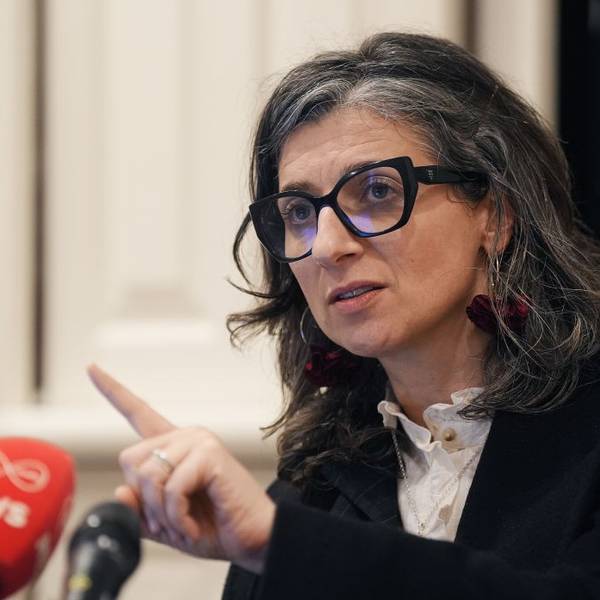While U.S. President Joe Biden's address to the United Nations General Assembly drew criticism from advocates for its "extraordinarily insufficient" sense of urgency regarding international climate aid for the Global South, U.N. Secretary-General
Antonio Guterres did not mince words in his speech to world leaders Monday, warning that the world stands "on the edge of an abyss" largely caused by the policy choices of the wealthiest countries.
"The world must wake up. We face the greatest cascade of crises in our lifetimes."
--U.N. Secretary-General Antonio Guterres
The secretary-general
told the U.N. General Assembly (UNGA) that he was there "to sound the alarm" regarding persistent
inequality across the globe--pointing to vaccine apartheid and the inequities exposed by the Covid-19 pandemic, climate injustice, and the widening gap between the rich and poor.
"The world must wake up," Guterres said. "We face the greatest cascade of crises in our lifetimes."
Guterres repeated earlier warnings about the climate crisis, which has already pushed tens of thousands of people in Madagascar to the brink of famine and caused deadly wildfires,
heatwaves, and flash floods in numerous regions--while the governments of wealthy countries continue handing out subsidies to planet-heating fossil fuel companies and make only incremental progress toward shifting to a clean energy economy.
"This is a planetary emergency," Guterres said. "Our world has never been more threatened, or more divided."
Guterres condemned the current state of worldwide vaccine distribution "an obscenity," with
79% of Covid-19 vaccines having gone into the arms of people in high- and upper-middle-income countries and fewer than 1% sent to low-income countries.
Such vaccine apartheid "is a moral indictment of the state of our world," he said, demanding that vaccine doses reach at least 70% of the world's population by the middle of 2022--a plan that he said is entirely possible through cooperation between pharmaceutical companies, the World Health Organization, and other stakeholders.
"We have no time to lose," Guterres said. "To restore trust and inspire hope, we need cooperation, we need dialogue, we need understanding."
The secretary-general struck a tone of disgust regarding persistent global inequalities--pointing to the recent trips into space by Amazon founder Jeff Bezos and
SpaceX founder Elon Musk, two of the richest people in the word.
"Billionaires joyriding to space while millions go hungry on Earth" only serves to worsen "a malady of mistrust," Guterres
said.
Distributing sufficient resources to all people in the world, ending the Covid-19 pandemic, and confronting the climate emergency are all possible, Guterres emphasized. But with the U.S. and China "slipping towards two different sets of economic
trade, financial, and technological rules," he said, effective global cooperation will be much harder.
"It will be impossible to address the dramatic economic and development challenges, while the world's two largest economies are at odds with each other," Guterres said. "We need cooperation, we need dialogue, we need understanding."
"We face a moment of truth," said the U.N. leader. "Now is the time to restore trust and now is the time to restore hope--and I do have hope. The problems we have created are problems we can solve."
"Humanity has shown that we are capable of great things when we work together," he added.




